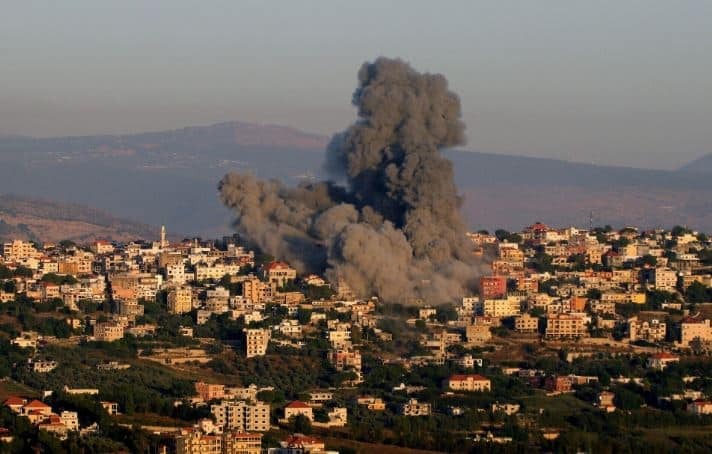
Israel Lebanon conflict: Israel (Israel) has started a ground operation against Hezbollah (Hezbollah) in Lebanon. Israel had been conducting airstrikes in Lebanon long before it launched its ground invasion. On September 27, Hezbollah leader Hassan Nasrallah was killed in an airstrike on a building in the capital Beirut. After this Israel started ground action in Lebanon.
According to Lebanese officials, more than 1200 people have been killed and 1.2 million people have been displaced in the Israeli attack. Israel has confirmed the deaths of eight of its soldiers, while former Israeli Prime Minister Ehud Olmert has said that a ground operation in Lebanon could prove costly for Israel.
Let us tell you that Olmert was the Prime Minister of Israel from 2006 to 2009. Olmert, considered the country's 12th Prime Minister, negotiated several peace agreements with the Palestinians and the Arab world; Israel also fought a 34-day ground war during Olmert's reign. In this battle, 1191 Lebanese were killed while 121 Israeli soldiers and 44 civilians were killed. It is called Winograd Commission. The commission concluded that Israel had started a protracted war, which ended without a clear victory.
Israeli attack on Lebanon in 2006
Israel hastily launched the operation after eight of its soldiers were killed and two were kidnapped in a Hezbollah attack in 2006, but now Israel has made extensive preparations for this battle before entering Lebanon and the Gaza front. But the returning soldiers have also been deployed. He had been fighting there for the last one year, but before starting the ground action in Lebanon, Israel has destroyed many weapons depots of Hezbollah in these air strikes, including the depot of Hassan Nasrallah. This time Israel is trying to capture the cities of South Lebanon. Southern Lebanon has been under the control of Hezbollah for a long time.
What is Israel's situation in Lebanon?
Despite so much preparation, Israel has destroyed Hezbollah's weapons stockpile and leaders, yet there is a difference between Hamas and Hezbollah. After the death of Hassan Nasrallah it got its new leader in the form of Hashim Safideen. He has held many important positions in Hezbollah. He also has long experience.
Hezbollah has the same large network of tunnels and other infrastructure in southern Lebanon that Hamas has in Gaza. When Israel tried to destroy this network of tunnels by entering Gaza, it did not succeed even after a year. This network of tunnels could be a panacea for Hezbollah and Hezbollah has some resources that Israel is not aware of. This enables him to fight in the place and direction of his choice. Only time will tell the outcome of this fight. But one thing is clear that neither Israel is the Israel of 2006 nor Hezbollah is the Hezbollah of 2006.
 look news india
look news india